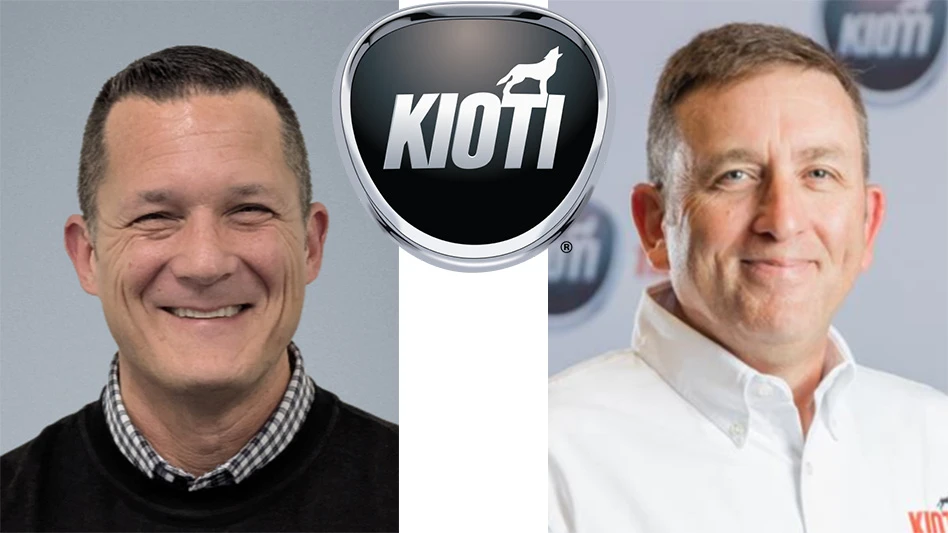
Adobe Stock
The alpha wolf, though largely mythological, is portrayed as naturally confident, strong and decisive. Responsibilities of the alpha include protecting and providing for the group. The alpha can lead from the front or support the pack from behind, analyzing weaknesses.
During the most recent Syngenta Business Institute, where superintendents gathered for a custom executive education program led by professors from Wake Forest University, their leadership styles were evaluated and enhanced through a series of exercises. Unlike the alpha wolf, good leaders are entirely real and they make a substantial difference to organizations lucky enough to have them.
“Leadership is about creating an inspiring, motivating workplace where people can do their best work,” says Dr. Sherry Moss, associate dean of MBA programs and professor of organizational studies. She led two sessions at SBI, one on executive decision making and one on managing teams and individuals.
Decisions should be made in a variety of ways and that is why it’s important to study decision making. On one end of the spectrum is manager-centered leadership where the leader makes the decision alone. At the other end of the spectrum is group-centered leadership where a decision is entirely delegated to the team involved.
Between those extremes the leader can consult with key individuals, consult with the group, or facilitate a discussion with the team, striving for consensus. To choose a method, the leader must consider a number of factors. Those factors include the significance of a decision, the competence of the team and how aligned the team is with the goals affected by the decision (get buy-in!), amongst other factors.
Some of the work presented by Moss is predicated on research performed by Victor Vroom, who established the time-driven model for decision-making and the development-driven model. (Honestly, it’s worth your time to understand these concepts and decision-making trees!)
“I’m not surprised that as a group, we are very decisive,” says SBI participant Michael Knoll, superintendent for Del Monte Golf Course in Pebble Beach, California. “We make decisions as opposed to the collective even though we think we give the collective ample opportunity. I make the decision because I am in the position to make the decision. Maybe I need to make the decision 15 percent of the time. The rest of the time the crew and the assistants can figure it out. That was brought way more to my consciousness.”
Moss notes that introducing new tools, particularly to a group of colleagues, creates a powerful environment for learning but those new skills must be applied on the job. “My favorite aspect of teaching is watching leaders develop their skills by practicing them at work and seeing results,” Moss says. “Over time, the commitment to a new skill, like using a decision-making matrix, pays off. People begin to respond to the leader’s increased confidence which is a byproduct of applying new tools, language and understanding.”
Kerry Shronts, executive director of executive education for Wake Forest, has helped organize classes for over 1,200 mid-level to senior executives in the past year. People want to be stronger leaders and they are seeking formal professional development and education for help.
“To have someone present the research behind leadership skills, and to guide the process to understand the tools – it’s not just a lecture,” Shronts says. “The participant, with guidance from faculty, has to unpack the content.” The professor challenges the students through questions and discussions to inspire critical thinking.
“When I have a chance to talk to superintendents, I realize how much SBI helps them,” Shronts adds. “They share their challenges – how do I recruit and retain talent, how do I blend generations, how can I be a better leader? They are really impacting lives.” Shronts notes the impact is not only on the people they work with but everyone who enjoys the courses they help maintain.
Knoll takes the responsibilities and the learning personally. Before he began working in turf full-time, he was a businessman. “I learned a lot of what not to do in my first career,” Knoll says. “I was super-driven. Business was the objective so I nullified the person. It was all business.”
Starting over in turf he learned more about leadership. “When you don’t have a title, you have to act different for people to trust you,” Knoll says. “You have to create a relationship where people believe in you. Starting over as a laborer shaped me completely differently.”
Knoll knows there is nothing that can happen on course that they won’t recover from. “Build personal relationships and people will follow you,” he says. Previously he was mentored at Pebble Beach by Bubba Wright, who also attended SBI, and who is now the director of agronomy at Big Cedar Lodge in Springfield, Missouri.
“Bubba was super laid back. You never saw him yell,” Knoll says. “He would privately coach people. That morphed into me managing top crew members by thinking: Give them the autonomy to do their jobs and work with the less experienced staff. Let’s do everything in our power to train, teach and develop.”
There are times to make decisions individually and times to delegate. It takes practice. “It’s like the wolf pack situation – someone has to make sure no one is left behind,” Knoll says. When making decisions that affect individuals as well as the group, multiple factors are involved and the instinctive choice is not always the best one. Learned leadership and decision-making skills will benefit the entire organization.
Lee Carr is a northeast Ohio-based writer and senior Golf Course Industry contributor.
Latest from Golf Course Industry
- Graze, Invited partner for autonomous mowing launch at Gleneagles CC
- New grasses up north?
- From the publisher’s pen: Technology diffusion and turf
- Applications open for 2025 Syngenta Business Institute
- Smart Greens Episode 1: Welcome to the digital agronomy era
- PBI-Gordon promotes Jeff Marvin
- USGA investing $1 million into Western Pennsylvania public golf
- KemperSports taps new strategy EVP





